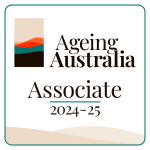Healthcare Jobs in Australia: Visa Sponsorship Guide 2024

Securing Healthcare Jobs in Australia with Visa Sponsorship: A Golden Opportunity
Australia’s healthcare sector is experiencing unprecedented demand, creating a golden opportunity for international healthcare professionals seeking new horizons. With projections indicating a significant shortage of healthcare workers in the coming years, Australia has opened its doors to skilled professionals from around the world. This comprehensive guide will walk you through the process of securing a healthcare job in Australia with visa sponsorship, highlighting the current demand, visa options, and strategies for success.
The Australian Healthcare Landscape: A Growing Demand
Australia has long faced challenges in maintaining an adequate healthcare workforce, particularly in rural and remote areas. The COVID-19 pandemic has further exacerbated these issues, placing increased pressure on an already strained system. As a result, the Australian government and healthcare institutions are actively seeking international talent to fill critical roles across various specialties.
Current Statistics and Projections
The demand for healthcare professionals in Australia is staggering:
- By 2025, Australia is projected to face a shortfall of approximately 85,000 nurses, with this number expected to rise to 123,000 by 2030.
- The healthcare sector offers around 500,000 job opportunities with visa sponsorship available for various roles.
- Mental health services are particularly under pressure, with Australia expected to be 60% short of its required mental health workforce by 2030.
These figures underscore the urgent need for skilled healthcare professionals and the abundance of opportunities available for those looking to work in Australia.
In-Demand Healthcare Jobs in Australia
While the demand spans across various healthcare roles, certain professions are particularly sought after:
1. Nursing
Nurses are in high demand across all specialties, including:
- Registered Nurses (RNs)
- Clinical Nurse Specialists
- Nurse Practitioners
- Midwives
2. Mental Health Professionals
With the growing focus on mental health, there’s a significant need for:
- Psychiatrists
- Psychologists
- Mental Health Nurses
- Counselors
3. Aged Care Workers
As Australia’s population ages, the demand for aged care professionals continues to rise, including:
- Aged Care Nurses
- Personal Care Assistants
- Occupational Therapists specializing in geriatric care
4. Allied Health Professionals
Various allied health roles are also in high demand, such as:
- Physiotherapists
- Occupational Therapists
- Speech Pathologists
- Radiographers
Government Initiatives and Investments
The Australian government has recognized the critical nature of healthcare workforce shortages and has implemented several initiatives to address the issue:
- Significant Financial Investment: The government has allocated $146.1 billion for health and aged care from 2024 through 2025, demonstrating a strong commitment to improving the healthcare sector.
- Workforce Incentive Program Practice Stream: This program aims to address service gaps by providing incentives for healthcare professionals to work in underserved areas.
- Rural Health Strategy: A comprehensive strategy has been developed to encourage healthcare professionals to work in regional and rural areas through targeted funding, bonding arrangements, and other incentives.
- Digital Health Initiatives: Investments in telehealth and digital health platforms are creating new opportunities and improving access to healthcare services, particularly in remote areas.
These initiatives not only create more job opportunities but also aim to improve working conditions and career prospects for healthcare professionals in Australia.
Visa Options for Healthcare Workers
Australia offers several visa pathways for international healthcare professionals:
1. Temporary Skill Shortage Visa (Subclass 482)
This visa allows employers to sponsor overseas workers for up to four years. It’s suitable for healthcare professionals whose occupations are on the Medium and Long-term Strategic Skills List (MLTSSL).
2. Skilled Employer Sponsored Regional (Provisional) Visa (Subclass 494)
This visa is designed to fill skill shortages in regional Australia and provides a pathway to permanent residency after working in a designated regional area for three years.
3. Skilled Independent Visa (Subclass 189)
While not employer-sponsored, this points-based visa allows skilled workers to live and work permanently anywhere in Australia. Healthcare professionals often score well on the points test due to their in-demand skills.
How to Secure a Healthcare Job with Visa Sponsorship in Australia
Securing a healthcare job with visa sponsorship in Australia requires careful planning and preparation. Here’s a step-by-step guide to help you navigate the process:
1. Research the Australian Healthcare System and Job Market
- Familiarize yourself with Australia’s healthcare structure, including public and private sectors.
- Identify which areas of healthcare are most in demand and align with your skills and experience.
2. Obtain Necessary Qualifications and Registrations
- Ensure your qualifications are recognized in Australia. You may need to undergo a skills assessment through the relevant professional body.
- Register with the appropriate Australian health practitioner board (e.g., Nursing and Midwifery Board of Australia for nurses).
3. Improve English Language Proficiency
- Most healthcare roles require a high level of English proficiency. Take the International English Language Testing System (IELTS) or Occupational English Test (OET) to demonstrate your language skills.
4. Gain Relevant Work Experience
- Australian employers often prefer candidates with experience in similar healthcare systems. Consider gaining experience in countries with comparable healthcare practices.
5. Develop a Strong Professional Network
- Join professional associations related to your healthcare specialty.
- Attend international healthcare conferences or webinars focused on the Australian healthcare system.
- Connect with Australian healthcare professionals and recruiters on LinkedIn.
6. Prepare a Compelling Application Package
- Tailor your resume and cover letter to Australian standards, highlighting your relevant skills and experience.
- Obtain strong references from previous employers or supervisors.
7. Target Employers Known for Visa Sponsorship
- Research and apply to employers with a history of sponsoring international healthcare workers, such as public hospitals, aged care facilities, and private clinics.
8. Register with Australian Healthcare Recruitment Agencies
- Agencies like Healthcare Australia, Global Medics, and HealthcareLink specialize in placing international healthcare professionals and can provide valuable assistance with job search and visa processes.
9. Be Prepared for the Visa Application Process
- Familiarize yourself with the requirements for your chosen visa pathway.
- Gather all necessary documents, including qualifications, work experience certificates, and police clearances.
10. Consider Regional Opportunities
- Be open to positions in regional or rural areas, as these often have more sponsorship opportunities and can provide a unique Australian experience.
Challenges and Solutions for International Healthcare Workers
While the opportunities in Australia are abundant, international healthcare professionals may face some challenges when transitioning to work in a new country. Here are some common challenges and strategies to overcome them:
Challenges:
- Adapting to a New Healthcare System: Australia’s healthcare system may differ significantly from your home country’s system.
- Cultural Differences in Patient Care: Patient expectations and communication styles may vary.
- Professional Registration Process: Navigating the registration process with Australian health practitioner boards can be complex.
- Work-Life Balance: Adjusting to new work schedules and lifestyle changes.
Solutions:
- Orientation Programs: Many employers offer comprehensive orientation programs for international healthcare workers. Take full advantage of these to familiarize yourself with Australian healthcare practices.
- Cultural Competency Training: Seek out cultural competency training to enhance your understanding of Australian patient care expectations and communication styles.
- Support Services: Utilize support services offered by professional associations and recruitment agencies to assist with registration processes and other administrative tasks.
- Networking and Peer Support: Connect with other international healthcare professionals who have successfully transitioned to working in Australia for advice and support.
- Continuous Professional Development: Engage in ongoing learning opportunities to stay updated with Australian healthcare practices and standards.
Ethical Considerations and Best Practices
As an international healthcare professional considering work in Australia, it’s important to be aware of ethical considerations and best practices:
- Fair Recruitment: Ensure you’re working with reputable employers and recruitment agencies that adhere to ethical recruitment practices.
- Cultural Competency: Commit to developing cultural competency to provide high-quality care to Australia’s diverse population.
- Professional Integrity: Maintain the highest standards of professional conduct and patient care, adhering to Australian healthcare regulations and ethical guidelines.
- Work-Life Balance: Prioritize your well-being to prevent burnout and maintain a high standard of patient care.
- Continuous Learning: Stay committed to ongoing professional development to provide the best possible care in the Australian healthcare context.
Success Stories and Testimonials
Many international healthcare professionals have successfully transitioned to rewarding careers in Australia. Here’s a brief case study:
Sarah, Registered Nurse from the Philippines
Sarah moved to Australia in 2021 after securing a position at a public hospital in regional New South Wales. She shares her experience:
“The process of moving to Australia was challenging but incredibly rewarding. The orientation program at my hospital was comprehensive, helping me adapt to the Australian healthcare system quickly. I’ve found my colleagues and patients to be welcoming and supportive. After two years, I’m now applying for permanent residency and looking forward to a long-term career in Australia. The work-life balance and professional development opportunities here are excellent.”
Frequently Asked Questions
Q1: What are the living costs in different Australian cities for healthcare professionals?
A1: Living costs vary significantly across Australian cities. As of 2024, Sydney and Melbourne are generally the most expensive, while cities like Brisbane, Adelaide, and Perth offer more affordable options. For example, a one-bedroom apartment in Sydney’s city center might cost around AUD 2,500 per month, compared to AUD 1,800 in Brisbane. However, healthcare professionals typically earn competitive salaries that offset these costs.
Q2: How does the work-life balance compare for healthcare professionals in Australia versus other countries?
A2: Australia is known for prioritizing work-life balance. Healthcare professionals generally work 38-40 hour weeks, with additional pay for overtime. Many report better work-life balance compared to countries like the United States or the United Kingdom. A 2023 survey by the Australian Healthcare and Hospitals Association found that 72% of international healthcare workers reported improved work-life balance after moving to Australia.
Q3: What are the opportunities for career advancement in the Australian healthcare sector?
A3: The Australian healthcare sector offers numerous opportunities for career advancement. These include:
- Specialization in areas such as critical care, oncology, or mental health
- Management and leadership roles
- Research and academic positions
- Advanced practice roles (e.g., Nurse Practitioner)
- Opportunities for further education and training, often supported by employers
Q4: How does the Australian healthcare system differ from other countries?
A4: Australia has a hybrid public-private healthcare system. Key features include:
- Medicare: A universal public health insurance system
- Private health insurance: Optional additional coverage
- Strong emphasis on primary care and preventive medicine
- Well-developed telehealth services, especially for rural and remote areas
- Focus on evidence-based practice and continuous quality improvement
Q5: What support systems are available for international healthcare workers in Australia?
A5: International healthcare workers in Australia can access various support systems:
- Professional associations specific to their field (e.g., Australian Nursing and Midwifery Federation)
- Multicultural health services in major hospitals
- Government-funded settlement services for new migrants
- Peer support networks and mentoring programs
- Employee assistance programs offering counseling and support services
Conclusion
The Australian healthcare sector offers a wealth of opportunities for international healthcare professionals seeking new challenges and a high quality of life. With significant demand across various specialties, government support, and pathways to permanent residency, Australia presents an attractive destination for those looking to advance their healthcare careers.
By thoroughly researching the Australian healthcare system, preparing a strong application, and being open to opportunities in various locations, you can position yourself for success in securing a healthcare job with visa sponsorship in Australia. The journey may present challenges, but with the right preparation and mindset, it can lead to a rewarding and fulfilling career in one of the world’s leading healthcare systems.
As you embark on this exciting journey, remember that your skills and dedication are greatly valued and needed in Australia. Your contribution will not only advance your career but also play a crucial role in supporting the health and well-being of communities across the country.
Additional Resources
To further assist you in your journey to securing a healthcare job in Australia with visa sponsorship, here are some valuable resources:
- Department of Home Affairs – Working in Australia
- Australian Health Practitioner Regulation Agency (AHPRA)
- HealthcareLink – Job Search Platform
- Rural Health Workforce Australia
- Australian Healthcare and Hospitals Association
These resources provide detailed information on visa requirements, professional registration, job opportunities, and insights into the Australian healthcare system. By utilizing these tools and following the strategies outlined in this guide, you’ll be well-equipped to pursue your goal of working in Australia’s healthcare sector.









